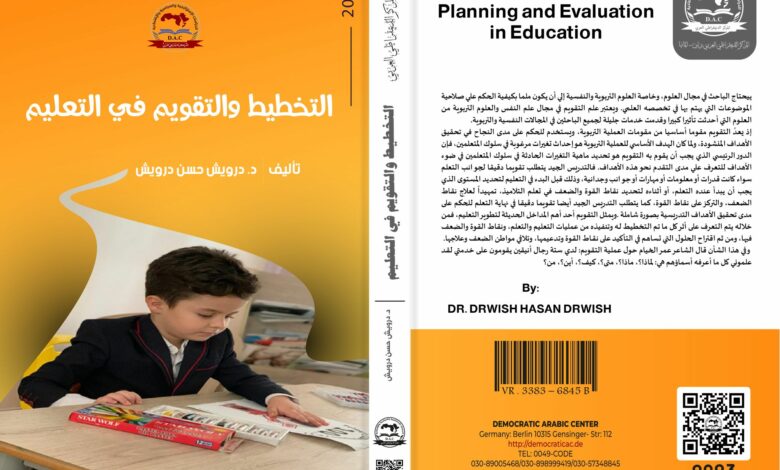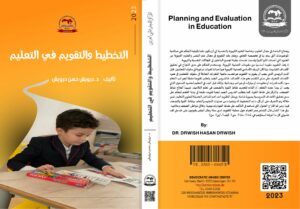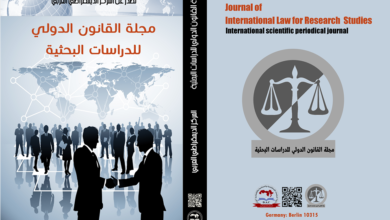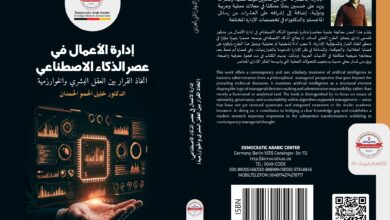
تأليف : : د. درويش حسن درويش
نسخة “pdf”-
التخطيط والتقويم في التعليم
الطبعة الأولى “2023″ –من كتاب: :- التخطيط والتقويم في التعليم
جميع حقوق الطبع محفوظة #المركز_الديمقراطي_العربي ولا يسمح بإعادة إصدار هذا الكتاب أو اي جزء منه أو تخزينه في نطاق إستعادة المعلومات أو نقله بأي شكل من الأشكال، دون إذن مسبق خطي من الناشر .
تقديم :-
التعليم يلعب دورًا مهمًا في تطور المجتمعات. يتم تزويد الأفراد الذين يشكلون المجتمع عن طريق التعليم بالمعرفة والمهارات الأساسية لتسهيل حياتهم الفردية والاجتماعية. في السنوات المتقدمة، يتم تنظيم تأثيرات التعليم على المعرفة والمهارات المهنية المكتسبة. يتم تنفيذ جميع هذه التأثيرات من خلال برامج تعليمية تُعد في إطار خطة وفقًا للأهداف الوطنية. يجب مراعاة التطورات في مجالات المعرفة والتكنولوجيا والظروف الاجتماعية المتغيرة واحتياجات الفرد المتنوعة والاحتياجات المحتملة التي قد تظهر في المستقبل عند إعداد برامج التعليم.
تتألف برامج التعليم من أربعة عناصر رئيسية هي الأهداف والمحتوى وعملية التعلم والتدريس والتقييم. تكمن أهداف برامج التعليم في التعبير عن ما يمكن للطلاب القيام به بعد فعاليات التعلم والتدريس. يشمل المحتوى المعرفة التي يكتسبها الطلاب والأنشطة التي يتم تنفيذها لتحقيق الأهداف المحددة. يتم توضيح عملية التقييم كخطوة للتحقق من مدى تحقيق الأهداف بعد هذه العمليات.
يتم تقديم هذا الكتاب لنقل التفاصيل المتعلقة بالعمليات التعليمية من التخطيط إلى التقييم. يتم تناول خصائص برامج التعليم ومواضيع تطوير البرامج في الجزء الأول من الكتاب، بينما يتناول الجزء الثاني أساليب وتقنيات العملية التعليمية واستراتيجياتها. يتم التركيز في الجزء الثالث على نماذج التعلم المختلفة، وفي الجزء الرابع يتم التطرق إلى تصميم وإدارة بيئات التعليم وإجراءات التقييم.
يتم إيلاء أهمية لجانب التقييم في عملية التعليم في الجزء الثاني من الكتاب. يتناول الجزء الخامس قياس وتقييم في مرحلة الطفولة المبكرة والمواصفات التقنية المطلوبة للأدوات التقييمية، بينما يتناول الجزء السادس أدوات وتقنيات التقييم المستخدمة في التعليم، ويتناول الجزء السابع بعض الإجراءات الإحصائية المتعلقة بتحليل نتائج التقييم. وأخيرًا الجزء الثامن من الكتاب يتناول عمليات الاحتساب الإحصائي وتحليل البيانات وتفسير النتائج في هذا السياق.
نأمل أن يكون هذا الكتاب مفيدًا لكم ويساعدكم في أبحاثكم وأعمالكم. نتمنى لكم التوفيق في جميع مساعيكم.
Abstract
Education plays a crucial role in the development of societies. It provides individuals who make up the community with the knowledge and essential skills to facilitate their personal and social lives. In recent years, the impact of education on acquired knowledge and professional skills has been emphasized. All these impacts are implemented through educational programs designed within a framework based on national objectives. Consideration should be given to developments in knowledge, technology, changing social conditions, diverse individual needs, and potential future needs when designing educational programs.
Educational programs consist of four main elements: objectives, content, the process of learning and teaching, and assessment. The objectives of educational programs aim to express what students can do after learning and teaching activities. The content includes the knowledge that students acquire and the activities implemented to achieve the specified objectives. The assessment process is elucidated as a step to verify the extent to which the objectives are achieved after these processes.
This book is presented to convey details related to educational processes from planning to assessment. The characteristics of educational programs and program development topics are addressed in the first part of the book, while the second part covers the methods and techniques of the educational process and its strategies. The third part focuses on different learning models, and the fourth part addresses the design and management of learning environments and assessment procedures.
The importance of the assessment aspect in the educational process is emphasized in the second part of the book. The fifth part discusses measurement and evaluation in early childhood and the technical specifications required for assessment tools, while the sixth part covers assessment tools and techniques used in education. The seventh part addresses some statistical procedures related to the analysis of assessment results. Finally, the eighth part of the book delves into statistical computation, data analysis, and interpreting results in this context.
We hope this book proves to be useful to you and assists you in your research and work. We wish you success in all your endeavors.
الناشر: المركـز الديمقراطي العربي للدراسات الاستراتيجية والسياسية والاقتصادية – ألمانيا – برلين
Democratic Arabic Center- Berlin – Germany





